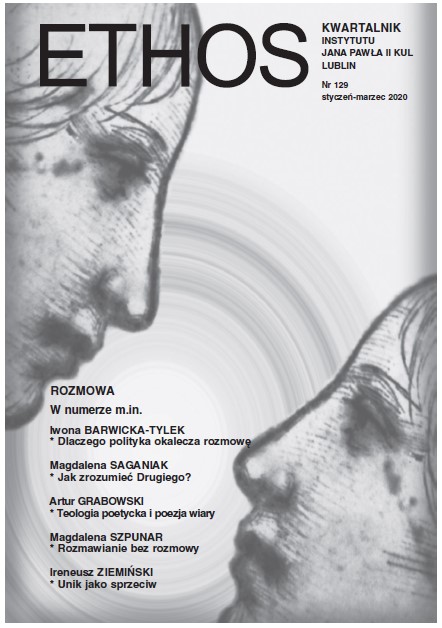Unik jako sprzeciw. Gest Piłata w świetle Osoby i czynu Karola Wojtyły
Noninvolvement as an Expression of Opposition: Pilate’s Gesture referred to the Conceptual Universe of Karol Wojtyła’s The Acting Person
Author(s): Ireneusz ZiemińskiSubject(s): Christian Theology and Religion, Ethics / Practical Philosophy
Published by: Katolicki Uniwersytet Lubelski Jana Pawła II - Instytut Jana Pawła II, Wydział Filozofii
Keywords: Pilate; Jesus, participation; solidarity; conformism; noninvolvement; opposition;
Summary/Abstract: The article comprises an ethical analysis of Pilate’s gesture of washing his hands during the trial of Jesus. The considerations refer to the four moral attitudes scrutinized by Karol Wojtyła in his work The Acting Person, namely, solidarity, opposition, conformism, and noninvolvement. Pilate’s gesture—the author of the article argues—was neither an expression of his solidarity with the Prisoner nor a manifestation of his conformism; rather, it symbolized opposition to the plot to kill an innocent person. Even though the opposition in question might not have been determined, and ultimately turned out ineffective (Pilate did sentence Jesus to death, having thus met the demands of the priests and of the angry crowd outside the praetorium), as a human being, the Roman governor did not solidarize with the verdict he passed as the judge. Thus his attitude is best described as an instance of noninvolvement, yet, in his predicament, noninvolvement appeared the only available form of opposition.
Journal: Ethos. Kwartalnik Instytutu Jana Pawła II KUL
- Issue Year: 33/2020
- Issue No: 1
- Page Range: 413-440
- Page Count: 28
- Language: Polish
- Content File-PDF

